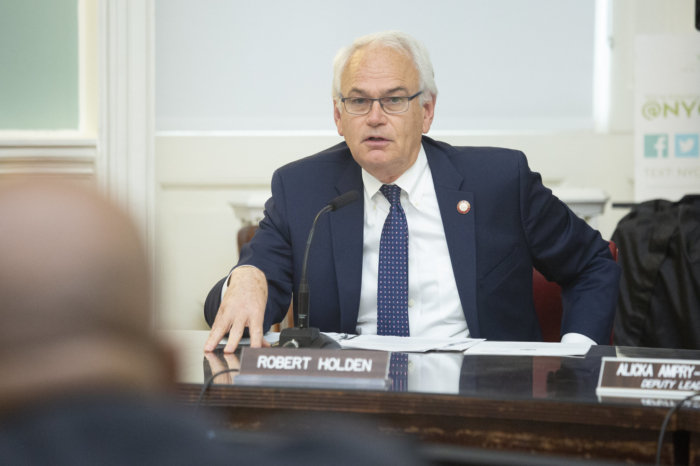By Joe Anuta
State Assemblywoman Grace Meng (D-Flushing) trounced three other U.S. House of Representatives hopefuls in a Democratic Party primary last week with the aid of a sizeable war chest, the backing of the Queens Democratic Party and, most importantly, a robust Asian vote concentrated in downtown Flushing.
Meng is now preparing for a November general election for the seat that begins in Maspeth and Glendale in the west, runs through Forest Hills and Flushing and ends up in Bayside in the east.
According to unofficial results, Meng picked up 51 percent of the vote, and most of that came from downtown Flushing in the 22nd Assembly District.
In that district alone, Meng racked up 4,243 votes, which represented one-third of the total she received.
The lawmaker enjoyed a large funding advantage over her opponents and had the support of the Queens Democratic machine, but Meng also rode a crest of excitement in the Chinese community.
If Meng defeats City Councilman Dan Halloran (R-Whitestone) in the general election in November, she will become the first Asian-American representative in Congress from New York state.
And that was a galvanizing force behind the robust turnout in heavily Asian enclaves like Flushing, according to community leaders.
“This is a great victory for the Asian-American people,” said Peter Tu, head of the Flushing Chinese Business Association, headquartered on Main Street.
Flushing had already vaulted one of its own into citywide office: Comptroller John Liu, who was elected in 2009.
But after federal investigators began to probe his campaign finances and the onetime Flushing councilman found himself making headlines, it took a toll on the neighborhood that elected him, Tu said.
While Liu has not been accused of any wrongdoing, sending Meng to Congress offered the population another opportunity to feel proud, according to Tu.
“We feel like we have to show our power to the majority of the people,” he said.
That power was evident June 26 and was not lost on the borough’s Democratic Party leader, Rep. Joseph Crowley (D-Jackson Heights), who called the election “historic” at Meng’s victory party in Bayside.
Lancman, too, noticed the excitement surrounding the prospect of Meng’s election that might not have existed for the other candidates.
“Without a doubt, her base of support were very excited about the historical aspect of her candidacy that was beyond the normal ebb and flow of politics,” he said.
But having $760,000 compared to Lancman’s $460,000, according to preliminary Federal Election Commission tallies, and hundreds of people involved in ground operations on Election Day did not hurt Meng either, according to Lancman.
“Grace was much more successful in turning out her supporters than we were,” he said.
But Meng also won in districts that were considered not part of her base.
In Lancman’s Assembly district, for example, she bested her opponent by 200 votes.
Crowley won the Assembly district that covers portions of her home turf including Maspeth and Middle Village in the east, but Meng beat out both of her opponents in the district that covers Elmhurst.
Overall, the turnout for the primary was a dismal 13 percent to 15 percent, based on preliminary results — and in some cases that turnout was hampered by city Board of Elections workers, who unjustly turned some people away from the polls, according to an agency that was monitoring.
The Asian American Legal Defense and Education Fund found several instances of voters being denied a written ballot when their information did not appear to be in the system.
Under federal law, any voter has the option of filling out what is known as an affidavit ballot and having that ballot checked at a later date.
Reach reporter Joe Anuta by e-mail at januta@cnglocal.com or by phone at 718-260-4566.




































